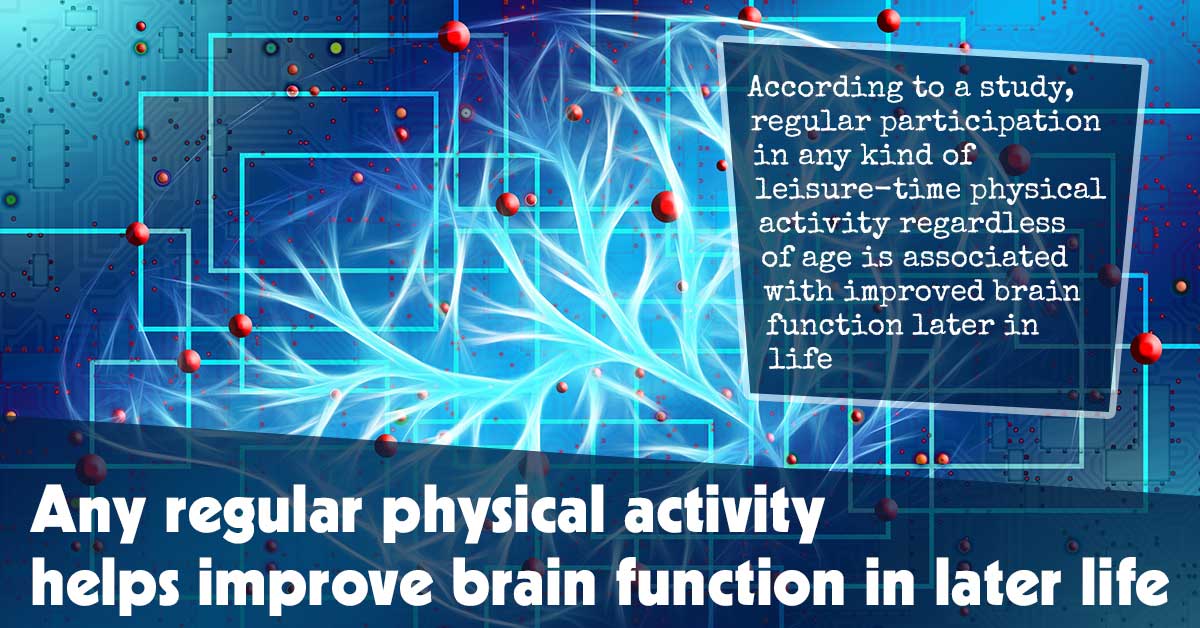According to the results of a long-term study, regular participation in any kind of leisure-time physical activity regardless of age is associated with improved brain function later in life, but keeping an exercise regimen during adulthood appears to be the most beneficial for retaining memory and mental sharpness.1✅ JOURNAL REFERENCE DOI: 10.1136/jnnp-2022-329955
Even though adjusting for variables such as education, household income, and childhood cognitive ability lessened the observed relationships, the results continued to be statistically significant.
Physical activity is moderately linked to reduced risks of cognitive decline, dementia, and loss of mental acuity later in life. But it’s unclear if frequency, timing, or maintaining leisure-time physical activity throughout a life span could be important to cognitive abilities later in life.
The researchers were especially eager to find out if physical activity could be more beneficial in particular ‘sensitive’ periods throughout a life span, or over multiple periods.
To attempt to determine this, they checked out the association strength between a range of cognitive tests at 69 years old and recorded leisure-time physical activity of 1417 individuals participating in the 1946 birth cohort study at the ages of 36, 43, 53, 60-64, and 69.
Levels of physical activity were allocated to an inactive group; a moderately active group (1 to 4 times per month); a most active group (5 times or more per month), and calculated all 5 assessments to produce a total score that ranged from 0 which correlated to being inactive at all ages, to 5 which correlated to being active at all ages.
About 11% of individuals were physically inactive at all 5 time points; 17% of them were active at 1 time point; 20% of them were active at 2 and 3 time points; 17% of them were active at 4 time points and 15% of them at all 5 time points.
Cognitive performance at 69 years old was evaluated by making use of the validated ACE-111 that tests orientation and attention, visuospatial function, language, memory, and verbal fluency, as well as by processing speed and verbal memory tests.
Factors linked to the carriage of the APOE-e4 gene and an increased cognitive decline risk were also evaluated to determine if these modified any of the associations observed.
The result analysis revealed that maintaining physical activity at all 5 time points was linked to higher cognitive performance, processing speed, and verbal memory at 69 years old.
The effects were similar for all ages, and for the moderately active and most physically active individuals, indicating that regular physical activity at any stage of adulthood, even if taking part in as little as once a month, is associated with higher cognition.
The strongest association was however seen for sustained and cumulative physical activity and cognition later in life, and for the most physically active individuals at all ages.
The positive connection between cumulative physical activity and cognitive performance later in life was in part explained by education, socioeconomic position, and childhood cognition.
The effect however continued to be significant when these factors were accounted for, and the connections weren’t explained by mental or cardiovascular health differences later in life.
Together, the results indicate that initiating and maintaining physical activity throughout adulthood could be more significant than the frequency or timing of physical activity at a particular period.



